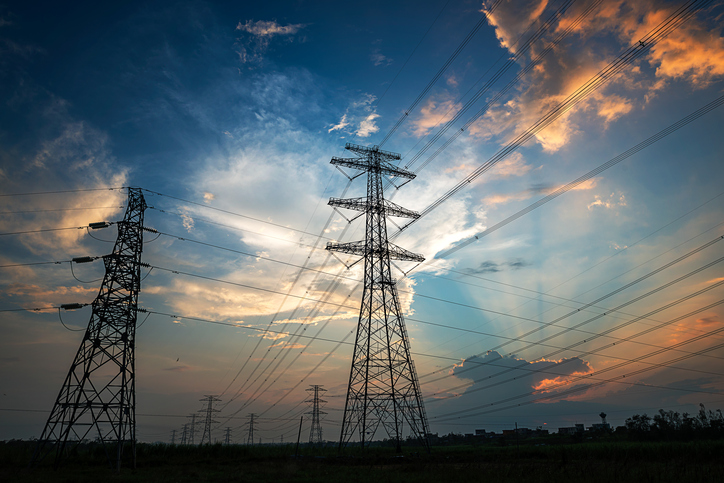Ofgem has confirmed that the default price cap will rise again in October, as energy prices hit record highs amid the world emerging from lockdown.
From 1 October, the price cap will increase for 15 million customers, with those on default tariffs seeing an increase of £139 from £1,138 to £1,277. Additionally prepayment customers will see an increase of £153, with their annual bills rising from £1,156 to £1,309.
This comes following energy costs growing by 50% in the last six months, driven by increases in demand as life increasingly returns to normal following COVID-19 lockdowns in the UK and globally.
Together with reduced reserves in storage facilities – again an impact of the pandemic and reduced operations over the last year – gas prices hit €40 (£33.95) per megawatt hour for the first time ever in Europe in July. Consequentially, prices in the UK rose above 100p per therm, the highest since 2005, according to the FT.
“With expectations of an economic rebound in response to an easing of lockdown conditions, record highs in the EU carbon market, rallying demand for liquefied natural gas in the Asia-Pacific region and concerns over the supply-demand balance for gas and electricity for this coming winter, we have seen a material rebound in the gas and electricity markets from their 2020 COVID-induced slump,” said Craig Lowrey, senior consultant at Cornwall Insight.
“Indeed, looking at winter 2021-22 Baseload electricity as the front season, the levels seen in June 2021 represent the highest price for such a period since August 2008.”
The increase follows a jump of £96 in the last price cap period in April, reflecting a return to pre-pandemic levels following a reduction of £84 in the previous October. This jump included a £23.69 Adjustment Allowance designed to enable suppliers to recoup some of their losses from bad debt, which increased during the COVID-19 pandemic due to more customers being unable to pay their energy bills.
In May, Ofgem announced that it was considering not extending this as a second float did not appear necessary. It confirmed that this week, and as such the cap level from October will include just a £9 adjustment, which is based on the remaining annualised cost that suppliers need to recover following the regulator’s conservative assessment in February, and not an additional allowance.
This will help cover the cost of customers who incurred bad credit due to the pandemic. Citizens Advice cautioned that nearly 2 million households are already behind on their energy bills, warning it may be the “perfect storm for families this autumn” as the price increases hit at the same time as changes to Universal Credit and the end of the furlough scheme.
The price cap is designed to offer a safety net for customers, ensuring that suppliers only pass on legitimate costs. Ofgem estimates that because of it, those on default tariffs are saving £75-£100 a year, or £100 billion in total.
“The price cap is the single most effective intervention for energy customers,” said Greg Jackson, CEO and founder of Octopus Energy. “It’s like the minimum wage – it guarantees a level of decency for everyone, but of course they can still do better if they shop around.
“Global gas prices have tripled in the last year, so without the price cap, energy prices would be hundreds of pounds higher than they are now. Never has the cap been more vital and it should be made permanent.”
He highlighted that the costs energy retailers incur by buying energy have increased by almost 80% since the beginning of the year, jumping from £418 in January to £747 in August 2021. Despite record levels of renewable energy on Britain’s electricity grid, natural gas still plays a key role and as such changes in its wholesale price have a significant impact on costs.
In July for example, natural gas made up 44% of demand in the UK. Earlier this year, we saw a period of low wind and cold weather that caused power prices to spike dramatically, with gas plants such as EDF’s West Burton B CCGT plant stepping in to keep the lights on, but at significant cost.
National Grid ESO has already warned that it is expecting tight margins again this coming winter, which combined with high gas prices could strain the system and its costs.
“Today’s news highlights the urgent need to reduce the UK’s dependency on fossil gas,” said Simon Shaw, regulatory affairs officer at Good Energy. “With 85% of UK homes still connected to the gas grid, it is beyond time to have an honest conversation about our reliance on fossil fuels. We need to protect consumers from future volatility, whilst also working towards the rapid decarbonisation of our homes and businesses.”
While many suppliers have praised the price cap for providing a level of protection, others have struggled with its impact on their operations. Centrica’s British Gas for example has previously stated that it creates challenges for it as it continues to see its profits fall.
Ahead of the incoming price cap rise in what will be the seventh price cap period, Ofgem’s chief executive Jonathan Brearley has urged customers to get in touch with their suppliers if they are struggling, and to shop around for a better deal if possible.
“We have put tough rules in place to ensure suppliers treat customers who are struggling with bills fairly, and welcome their commitment to reach out to those who most need help this winter. Where help is not forthcoming, we will not hesitate to act,” he continued.
“I appreciate this is extremely difficult news for many people, my commitment to customers is that Ofgem will continue to do everything we can to ensure they are protected this winter, especially those in vulnerable circumstances.”





